
Wildlife Futures Program
Our program serves to increase disease surveillance, management, and research to better protect wildlife across Pennsylvania and beyond.
What We DO
Launched in 2019, the Wildlife Futures Program is a novel partnership between Penn Vet and the Pennsylvania Game Commission aimed at strengthening the resilience of the Commonwealth’s 480 species of birds and mammals.
The Wildlife Futures Program conducts wildlife health surveillance, research, and outreach to inform and improve wildlife management in Pennsylvania and beyond.

Our Research
The threat posed by disease to wildlife and its conservation is at an all-time high. Wildlife Futures is actively conducting research and surveillance to negate this concerning trend.
- Investigating the impact of diseases and toxins on wildlife populations
- Analyzing the transmission pathways of diseases affecting wildlife health
- Informing management strategies to reduce the effects of disease on wildlife
- Exploring the application of working dogs for wildlife research and conservation
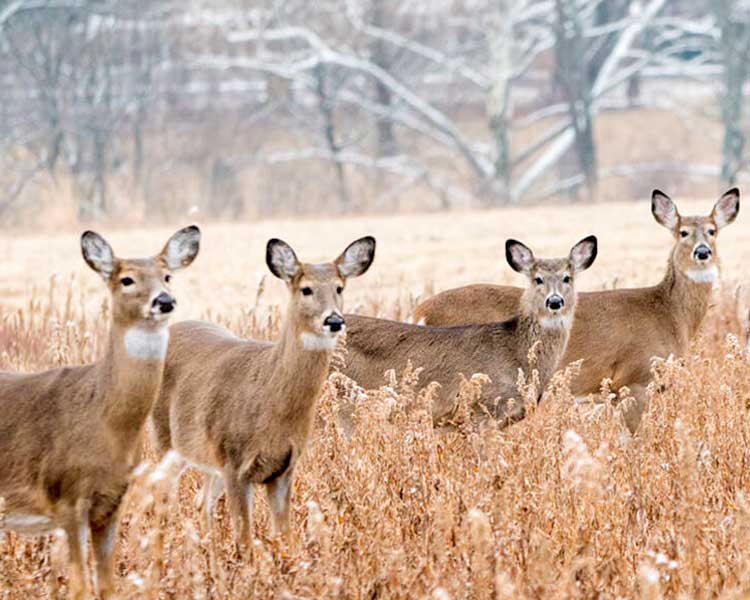
Preparedness and Surveillance
The Wildlife Futures Program aims to be the resource for wildlife health surveillance and diagnostic expertise for the Pennsylvania Game Commission and other partners.
Through our partnership with the Pennsylvania Game Commission, we have been able to expand diagnostic capacities and capabilities for wildlife submissions, provide additional case management, assist in the fulfillment of wildlife management goals, and much more.
Academic and Public Education
The Wildlife Futures Program trains health professionals to help protect wild populations and promote conservation in Pennsylvania and beyond. Our team engages and educates members of the general public, wildlife agency staff, and veterinary students through in-person and virtual training sessions, presentations, and workshops.
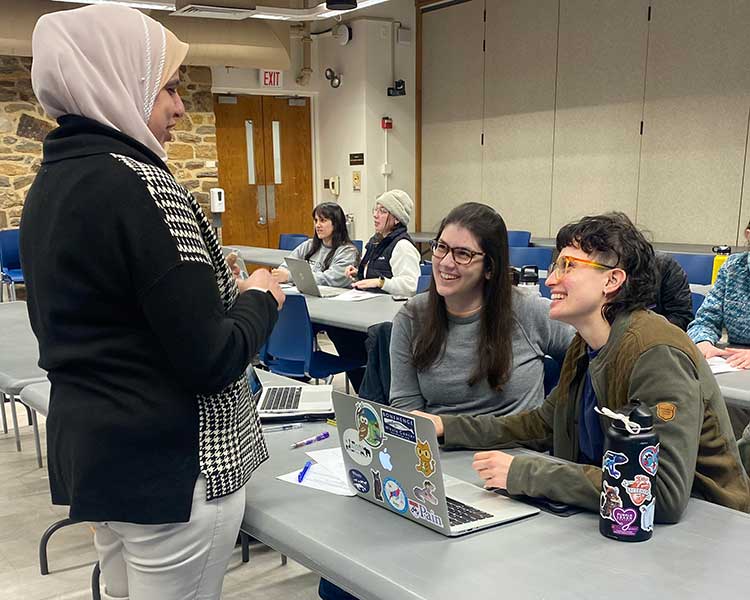
Our Goals
- Academic and Public Education: As a member of the University of Pennsylvania community, training the next generation of wildlife health professionals is key to our mission. Developing public awareness and interest in wildlife health is also fundamental to inspiring actions that promote wildlife health.
- Preparedness and Surveillance: Preparation for wildlife health events is a cornerstone of the Wildlife Futures Program. It is crucial that we develop tools and techniques to monitor wildlife health while advancing programs and practices to be ready for emerging disease threats.
- Professional Services: The Wildlife Futures Program is a highly trained and passionate team that provides professional and technical capacity to improve the work we do with wildlife. By training other wildlife professionals and researching new techniques, we help implement best practices and serve as a valued resource to advance practices.
- Research: The Wildlife Futures Program has established a nationally recognized research program to improve diagnostic capabilities, understand disease effects, and guide disease management efforts. Our team leverages innovative approaches and expertise, collaborating with experts across the University of Pennsylvania to address the complex problems facing wildlife health.
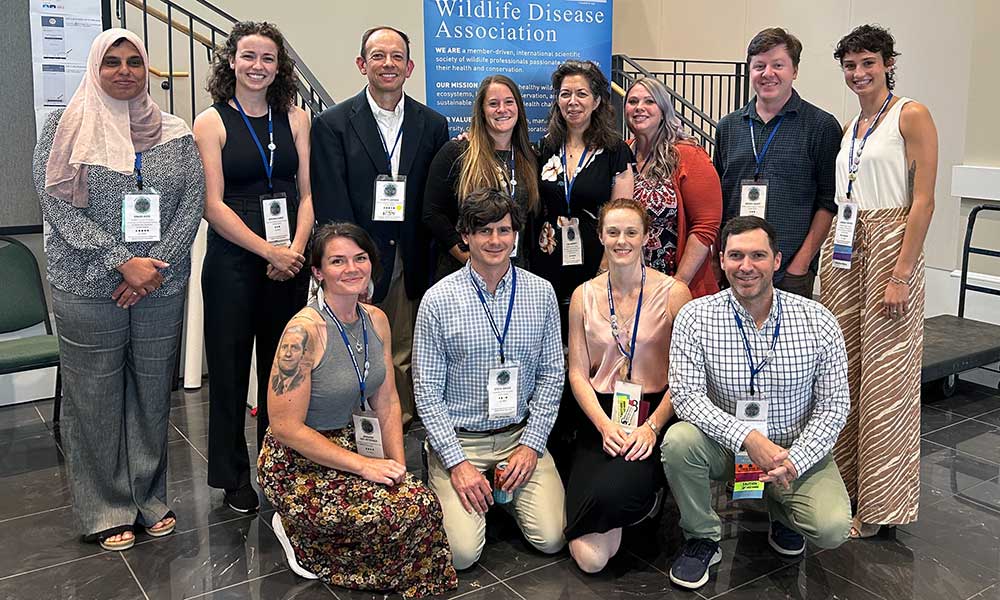
About us
Meet the Wildlife Futures Team
Our team employs wildlife health professionals across a wide array of disciplines. Together, they work to improve wildlife health management in Pennsylvania and beyond.
Read Our Annual Report
Discover more about our ongoing research projects, disease surveillance focuses, and our growing education and outreach opportunities.

Download the Wildlife Futures Program 2024-2025 Annual Report.

Report a Wildlife Health Issue
Any wild birds or mammals that appear abnormal, injured, sick, or are found dead should be reported. Remember to always remain at a safe distance when observing wildlife and do not handle wildlife unless you are hunting, trapping, or authorized to do so. To report sick or dead wildlife, call the Pennsylvania Game Commission at 1-833-PGC-WILD (742-9453).
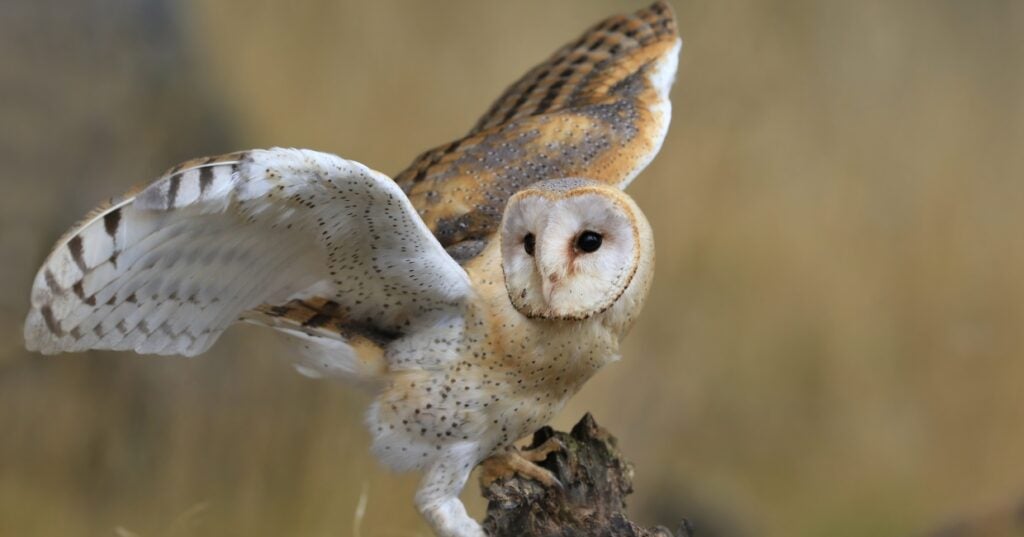
Penn Vet’s Wildlife Futures Seek to Unravel the Mystery of the Disappearing Barn Owl
Penn Vet’s Wildlife Futures Program and the Pennsylvania Game Commission (PGC) have been engaged in a collaborative effort to identify the causes of these owls’ decline and any actions that…
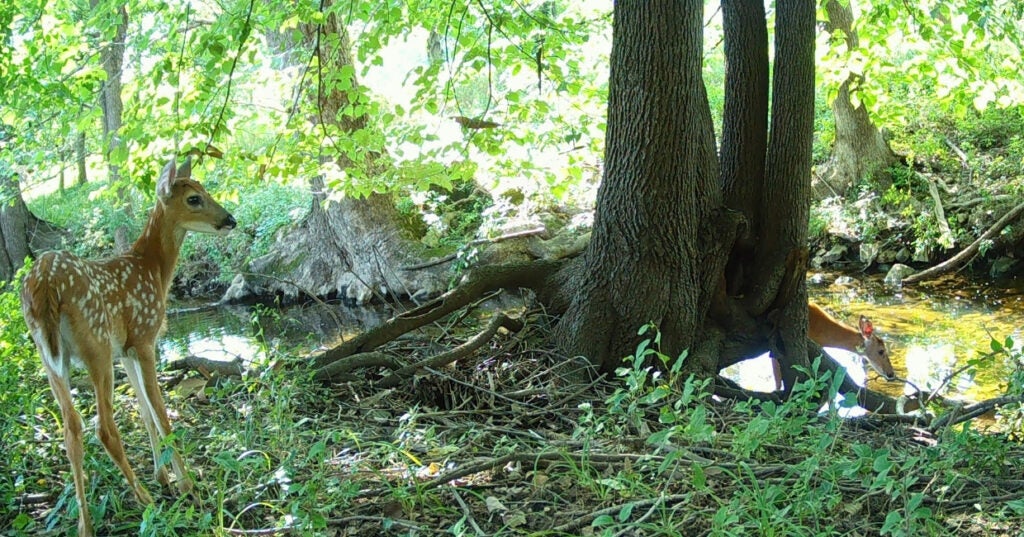
A New Penn Vet Study is Finding Where the Wild Things Are: Right Here in Philly!
A new project, the Accessing Urban Nature Initiative (AUNI), has started capturing images of seldom seen but decidedly special city dwellers like these – and many others – with the…
Wildlife Futures
382 West Street Road
Kennett Square, PA 19348

